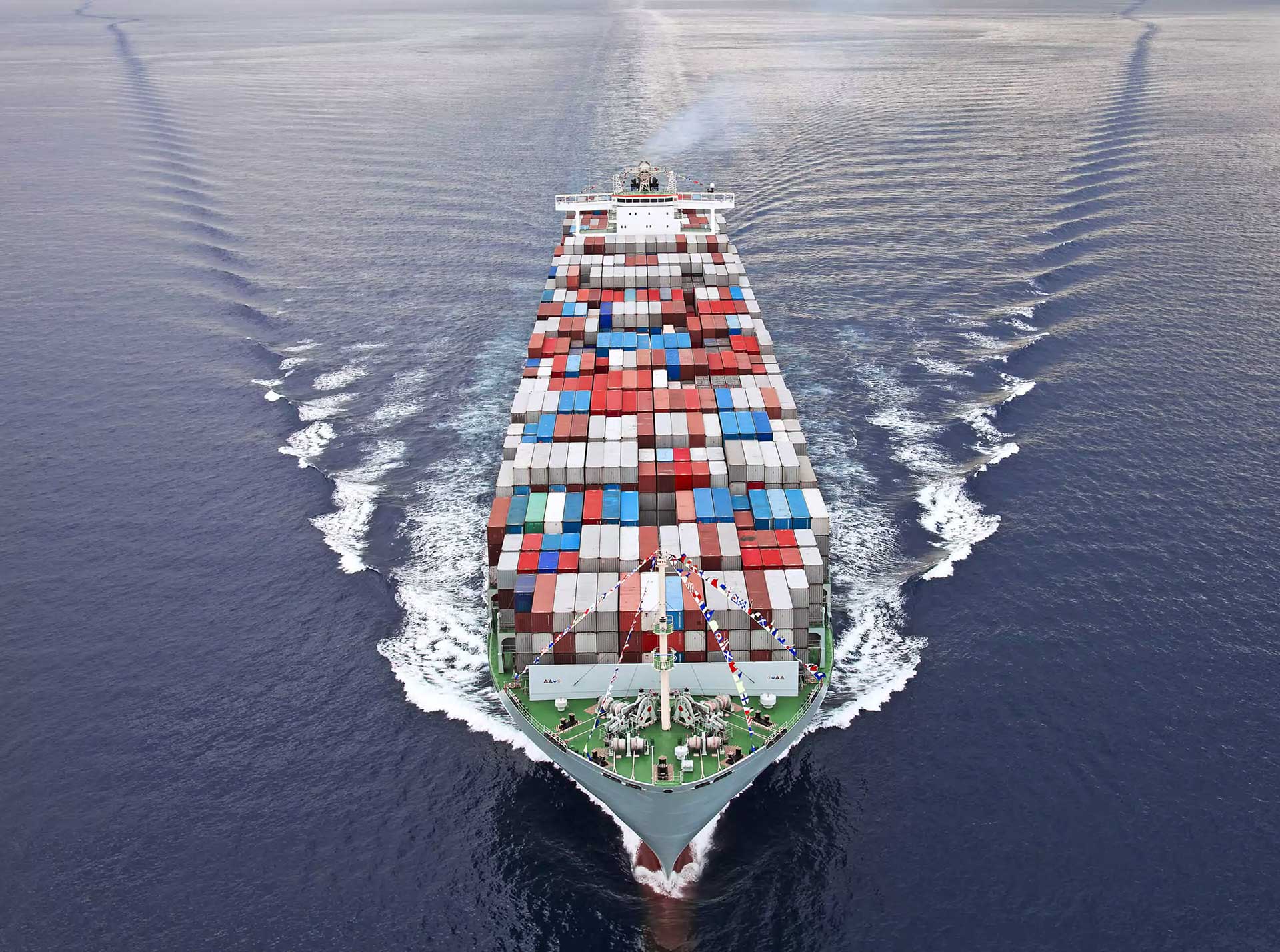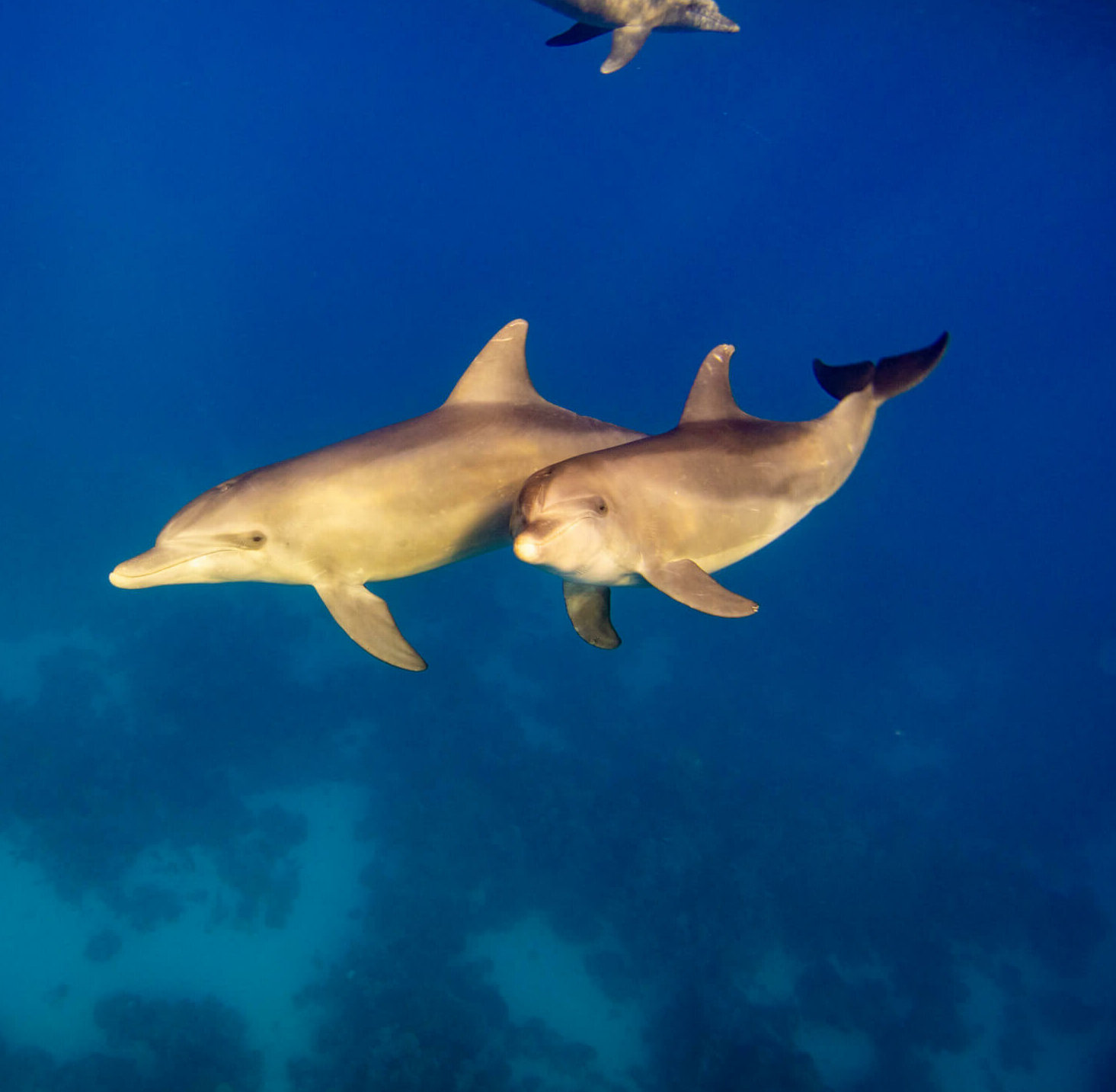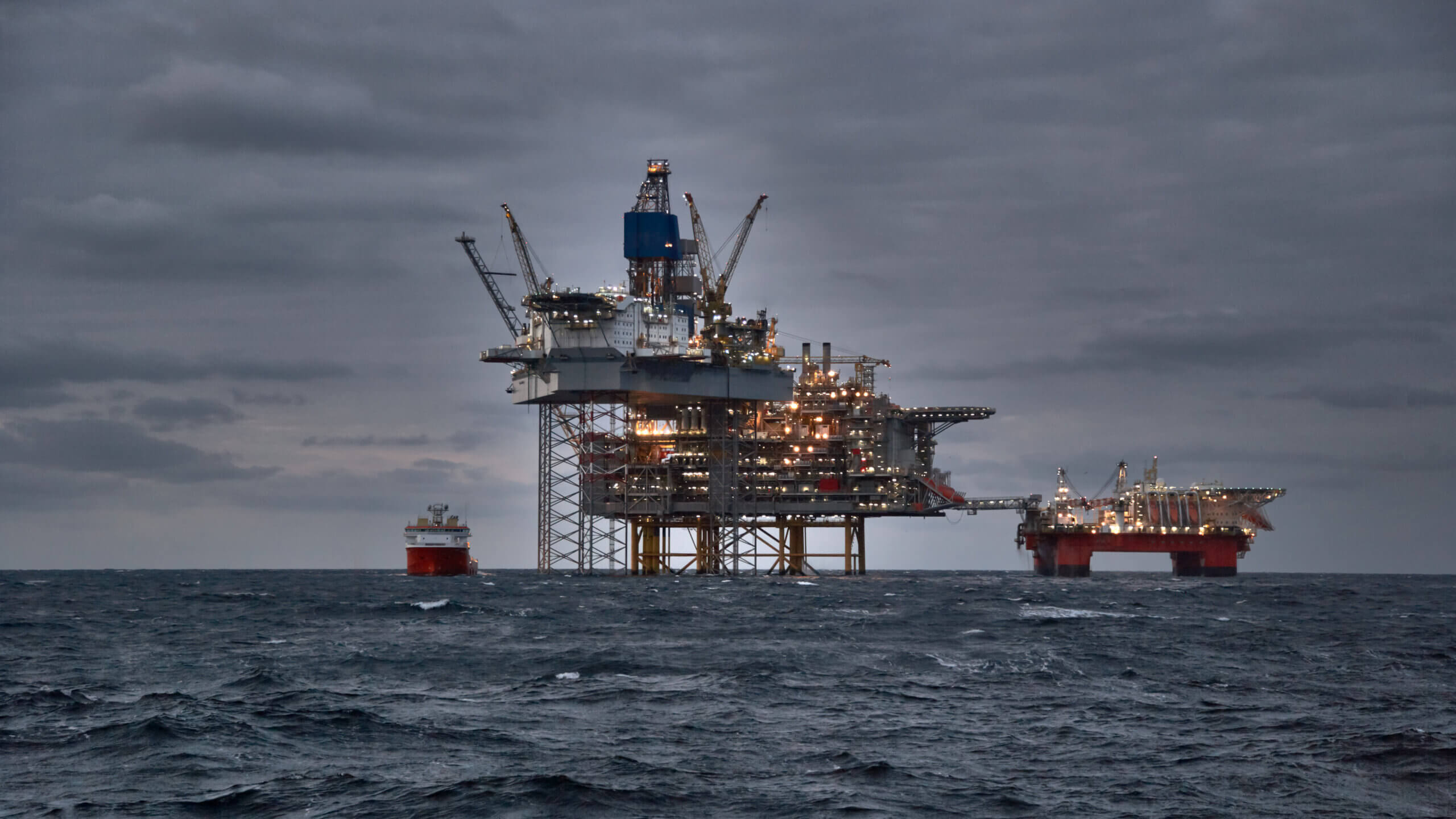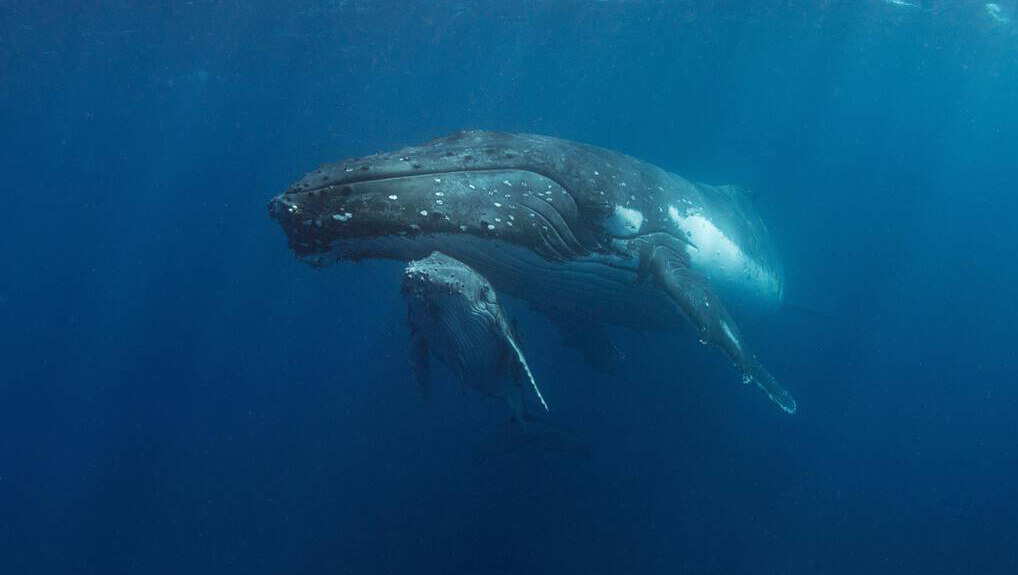Seismic airguns - as can be heard in the video - are used for search of oil in the seabed and generate up to 260 decibels every 10 to 15 seconds.
UNDERWATER NOISE POLLUTION
Deafening,
dangerous and deadly
The ocean is a habitat full of natural sounds, yet humans generate deafening noise under water. This has fatal consequences for marine life which relies on acoustic senses for orientation, communication or searching for prey.
OceanCare has been a loud voice for quieter seas since 2002. We ensure that noise pollution is addressed by governments and international bodies and we engage to reduce noise emissions. In some ocean regions, noise levels have doubled every decade since the 1950s. Noise pollution drives animals out of their habitat, makes them sick and or even kill them.
OceanCare's goals on underwater noise

Slow down!
The faster and larger ships are, the louder they get. Reducing vessel speed is the most effective measure which results in an immediate reduction of underwater noise as well as emissions of greenhouse gases and other air pollutants. This is what OceanCare is campaigning for.

Create quiet zones
Diverse and biologically important marine regions must be protected from noise pollution. OceanCare successfully achieved that in 2018 the waters between the Balearic Islands and the Spanish mainland were designated as a marine protected area and seismic surveys got rejected.

Stop searching for oil & gas
The search for oil and gas in the seabed involves the use of airguns which are among the loudest sources emitting highly intense noise blasts. Oil and gas prospection threatens marine life and is not compatible with international climate goals. Help us to stop it.
NEWS
STORIES ON OCEAN NOISE POLLUTION
VIDEO
10 FACTS ABOUT UNDERWATER NOISE POLLUTION
Negative impacts due to noise have been documented for at least 150 marine animal species.
Reducing the speed of the global shipping fleet by 10-20% causes a reduction of noise emissions by 40 and 67%, respectively.
Airguns used to search for oil and gas under the sea floor emit noise of up to 260 decibels every 10-15 seconds.
Following seismic tests in the North Atlantic, local fish catch-rates dropped by up to 70%.
Seismic tests generate 100 times more noise than normal background noise over a radius of up to 300,000 km2.
Seismic airgun noise can penetrate thousands of metres of water and dozens to hundreds of kilometres of seabed.
Publications on ocean noise
Your donation for quiet oceans
Support OceanCare’s demand for a speed reduction of transport shipping, as already 10% less speed would reduce shipping noise emissions significantly.

JOIN US IN SUPPORTING MARINE CONSERVATION
With your donation
Every amount is of value and will help to protect the ocean and its inhabitants both today and in the future.
With your interest
Take a dive into the underwater world: In the e-newsletter you can find out what OceanCare is doing for marine life on an ongoing basis.
